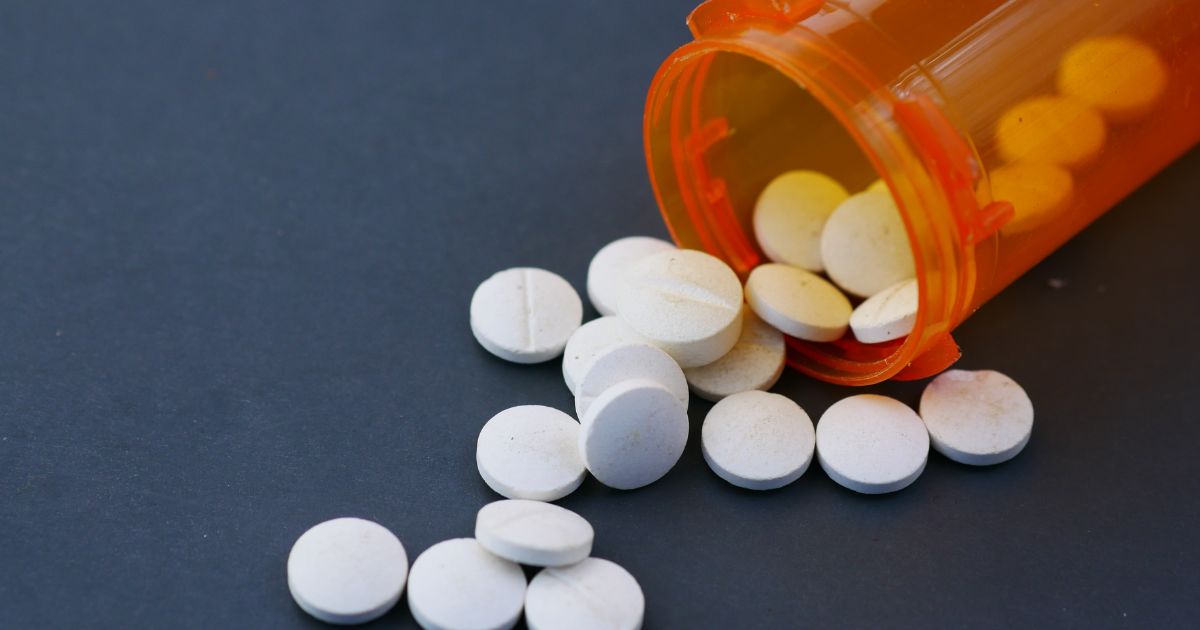Drug addiction is a serious issue in the United States, affecting millions of people nationwide. As we understand more about substance abuse and how it affects people, the need for effective prevention and treatment options has become crucial.
For those concerned that they or their loved ones may fall victim to addiction, there are several steps they can take to stay safe. Knowing which drugs pose the largest threat of addiction is one of the first steps you can take to help yourself and your loved ones avoid falling into the cycle of substance abuse.
What Is Drug Addiction?
Drug addiction is a chronic disease, characterized by relapsing and compulsive drug use despite this having a negative impact on a person’s life and well-being. Addiction is considered to be a brain disorder, as the chronic use of harmful substances causes changes in the brain’s chemical structure.
As this abuse continues over time, the reward and pleasure centers in the brain are altered to depend on the substance in order to function correctly. If the substance use is suddenly discontinued, this can cause the person to experience unpleasant and even dangerous withdrawal effects, causing them to continue using to avoid these side effects.
Like many other diseases, addiction disrupts the brain and body’s ability to function normally. Fortunately, this condition is treatable, with many prevention and rehabilitation services available across the nation. If left untreated, however, drug addiction can be a life-long and potentially deadly disease.
What Are The Signs and Symptoms of Drug Addiction?
Because of how serious drug addiction can be, it is important to know how to recognize the signs and symptoms of this condition so that proper help can be sought as soon as possible. If you are struggling with drug addiction, you may display several symptoms, including:
- Feeling the need to use the substance on a regular basis.
- Experiencing intense cravings or urges to use the substance by any means necessary.
- Needing to take increasingly higher amounts of the drug to achieve the same effect.
- Taking more of the substance or for longer periods of time than originally intended.
- Spending large amounts of time and money acquiring, using, or recovering from the effects of the substance.
- Experiencing issues at work, school, or home due to your substance use.
- Continuing to use the substance even if this is causing problems in your personal life or for the people around you.
- Resorting to illegal means of acquiring the substance, such as theft.
- Participating in risky activities while under the influence, such as driving, swimming, or having sex.
- Being unsuccessful in attempts to reduce or stop substance use.
- Experiencing withdrawal symptoms when reducing or stopping substance use.
If you are concerned a loved one may be struggling with drug addiction, it is also important to know how to recognize the signs of substance abuse in others. There are several signs and symptoms of drug abuse that can manifest in a loved one, including:
- Sudden problems at work or school, such as missing assignments, loss of interest in responsibilities, or a decline in grades or work performance.
- Development of physical health problems, such as a lack of energy, poor motivation, unexplainable loss or gain of weight, or chronically blood-shot eyes.
- Decline in self-care, including poor hygiene, loss of interest in personal appearance, and an overall unkempt appearance.
- Behavioral changes, such as social isolation, secretive behavior, and loss of interest in hobbies and previously enjoyable activities.
- Money problems, such as frequently requesting money without explanation, or stealing money or belongings to continue funding substance abuse.
If you are concerned that you or a loved one may be struggling with drug addiction, it is important to seek help as soon as possible. Addiction is a serious disease, but with the right treatment and support, recovery is possible.
What Is the Most Addictive Drug?
According to the 2022 National Survey on Drug Use and Health, 48.7 million people aged 12 or older had a substance use disorder, including 29.5 million individuals who suffered from an alcohol use disorder.
As these numbers continue to increase, it is important to understand what drugs pose the most significant threat to the well-being of you and your loved ones. Addiction is a complex issue influenced by various factors, including the drug itself, a person’s genetics, mental health, and environment.
With that being said, the drugs that are currently believed to have the highest potential for addiction include:
- Alcohol: Drinking alcohol can be addictive due to its ability to flood the brain with dopamine and endorphins, which produce feelings of pleasure and calm. With repeated use, dependence can build resulting in addiction.
- Methamphetamine: Meth can produce an intense and long-lasting high characterized by euphoria, dopamine, and energy. This can keep a person coming back for more, resulting in dependence and addiction over time.
- Opioids: Opioids work by interacting with opioid receptors in the brain, producing feelings of euphoria, pain relief, and sedation. Whether taken illicitly or with a prescription, prolonged use of these drugs can lead to addiction.
- Benzodiazepines: Benzodiazepines target GABA receptors in the brain, and prolonged use can result in less restraint on the release of dopamine. This can keep people coming back for more, leading to addiction if this use is continued.
- Cocaine: Cocaine works by stimulating the brain’s pleasure centers, releasing large amounts of dopamine into the system. This intense high is short-lived, however, often leading to immediate repeated use and a quickly developed addiction.
These are just a few of the most addictive drugs used across the country. If you or a loved one has experimented with any of these substances or has developed an addiction to them, it is crucial to seek professional help as soon as possible.
Who Can Help With Drug Addiction?
If you or a loved one is struggling with a drug addiction, it is crucial to seek help at a professional treatment center. Addiction rehab facilities are designed to provide the extensive support and intervention services needed to recover from substance abuse.
Royal Life Centers offers the tools and resources you need to achieve lasting recovery from drug addiction. Our treatment programs follow a comprehensive and holistic approach that treats your addiction at its core and promotes long-term sobriety.
Drug Addiction Treatment at Royal Life Centers
With the many forms that drug addiction can take, the serious consequences this disease can have on you and your loved ones’ lives cannot be taken lightly. Effective and lasting addiction treatment will not stop at simply removing the substance from your system.
At Royal Life Centers, we understand the importance of addressing the underlying circumstances of your substance abuse so that you can learn effective recovery and relapse-prevention skills.
Our treatment centers offer a full continuum of care to make sure each aspect of your addiction is being properly treated, including both holistic and evidence-based treatment services. Some of the treatment options you will have access to include:
- Medical detox
- Residential treatment
- Partial hospitalization
- Intensive outpatient treatment
- Outpatient care
- Behavioral therapies
- Holistic therapies
- Sober living
- Aftercare support
The addiction recovery process is a unique and complex experience, which is why we work with you to build an individualized treatment plan capable of meeting each of your recovery needs. If you are ready to start your journey to sobriety, reach out to us today.









